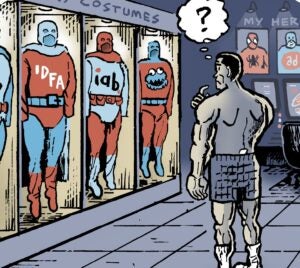2023 is firmly underway, and one advertising trend is clearly emerging: the inexorable growth of retail media. Perhaps this is unsurprising: in the U.S., the 10 largest retailers all operate their own retail media networks.
According to eMarketer, the advertising revenues of retailers are nearly double that of radio and print combined, and the market is continuing to grow at pace.
Retail media may still be a nascent industry, but it is quickly becoming integral to retailers’ advertising strategies. A report from GroupM published in September 2022 predicted that retail media advertising would increase 60% by 2027.
Almost overnight, we are seeing the UKs largest supermarket chains begin to capitalize on their online assets and first-party customer data to become significant media owners. Given the importance of e-commerce in the post-pandemic era, this makes sense from a revenue and growth perspective.
However, as traditional advertisers like Sainsbury’s or Tesco join the space, there are issues and questions, which we need to urgently address.
Who’s responsible?
Up until recently, retailers have sat on the advertiser side of the buying chain. Now, as they compete for brands’ advertising budgets, they’ll have to familiarize themselves with transparency issues, the ongoing debates around inventory media and value pots, and the difficulties of substantiating bid matches with placement.
Given their somewhat unique status in the ecosystem, retailers are perhaps in a position to influence debates and play a pivotal role in encouraging greater transparency of media trading. But to do so, they must be embedded within the industry.
There’s also the simple issue of resources. Retailers need to invest not only in tech and fulfillment, but also in people with the knowledge of the history of relations between media owners and agencies. They’ll also need the expertise to navigate these relationships without conflicting with their position as some of the biggest advertising spenders.
The challenge of standardization has already been noted, with industry bodies such as ISBA and the IAB having been asked to weigh in and issue guidance or provide assistance. Similarly, Unilever has called for retail media networks to collaboratively agree on standards in a push to get advertisers on board.
Of course, the consumer data retailers possess (their chief currency and USP for advertisers) is something they may be loath to share with the market.
The wider ecosystem
Soon, we may see the law of conservation be applied to the growth of retail media. As the UK enters a recession, it is unlikely that new budgets will materialize. Rather, they’ll likely be converted from elsewhere.
Who, then, are the net losers from the growth of retail media? Might we see traditional offline media subjected to further decline?
The implications of the growth in retail media networks are, of course, speculative. UK broadcasters are already looking to combat this by signing data match deals with retailers. Perhaps the future is not combative, but collaborative. Certainly, it will be something to keep an eye on.
As growth continues and the industry develops, it is essential that the industry exercise caution. This is something of a baptism of fire and it must be treated with care.
“Data-Driven Thinking” is written by members of the media community and contains fresh ideas on the digital revolution in media.
Follow Reed Smith LLP and AdExchanger on LinkedIn.














